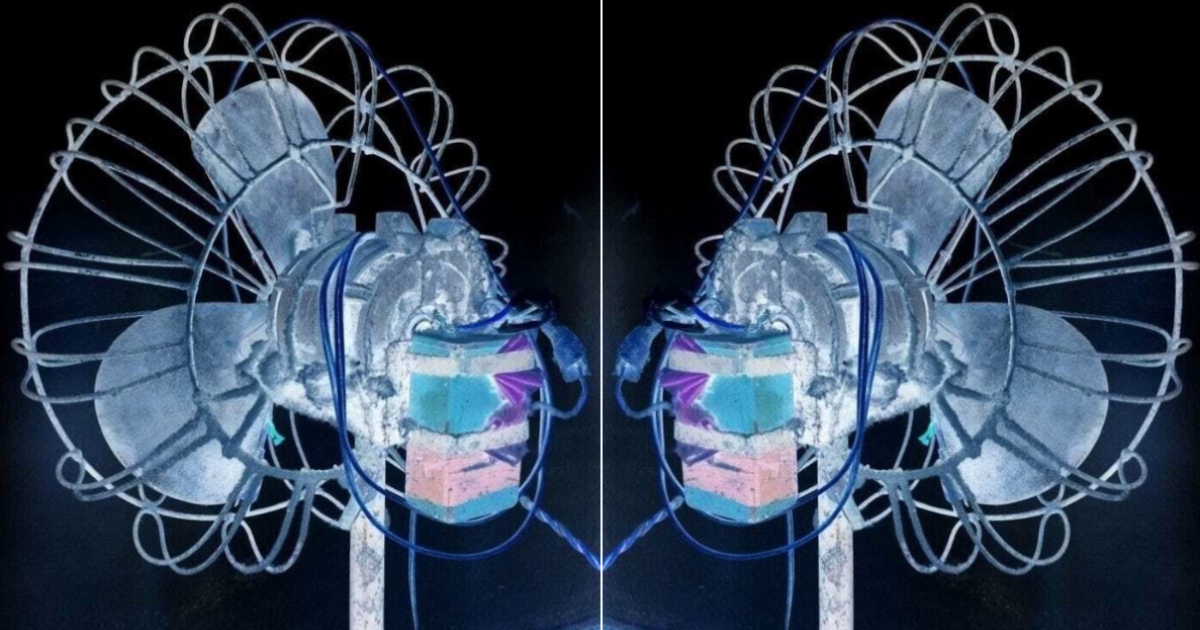“We don't have a government,” concluded a Cuban netizen in response to the Informative Note published this Thursday by the Union Electrica de Cuba (UNE), forecasting yet another day of grueling blackouts.
As the first half of May comes to an end, Cubans are horrified to find that the "fuel situation" and power outages have evolved in Miguel Díaz-Canel's discourse into "an extremely complex energy issue." Ratified a year ago (April 2023) for a second term until 2028 with 97.66% of the votes from deputies of the National Assembly of People's Power (ANPP), the ruler appointed by General Raúl Castro to succeed him has earned the dubious distinction of being the most incapable leader in Cuba's history.
Economically incompetent, inept at managing public affairs, indifferent, apathetic, dull, devoid of charisma, thoroughly indoctrinated, and as bland as unsalted eggs, Díaz-Canel remains a tenant of the Palace of the Revolution. Meanwhile, the regime's top brass (who truly call the shots) remain in a deadlock, unable to find a satisfactory way out of this predicament that aligns with their interests.
Under these circumstances, the UNE forecasts for this Thursday "an availability of 2,489 MW and a maximum demand of 3,400 MW, resulting in a deficit of 911 MW. Therefore, if the predicted conditions persist, a 981 MW outage is anticipated during this time frame."
Just a glance at the comments on their social media posts reveals that the UNE's forecasts and Díaz-Canel's promises hold the same meaning for Cubans: empty words. While the state-run company, led by Alfredo López Valdés, predicted a 980 MW impact on social media the day before, this Thursday it acknowledged that "the maximum impact during the day was 1,393 MW at 8:40 PM, coinciding with the peak hour."
That's over 400 MW more than predicted, according to the UNE's own data. The "joke" speaks for itself. Díaz-Canel's strategy for recovering the national electric power system (SEN) has failed as miserably as the "economic and monetary reorganization" spearheaded by the ousted and imprisoned Minister of Economy and Planning, Alejandro Gil Fernández.
Neither did he manage to minimize the blackouts by the end of 2022, nor did he carry out the investments and maintenance in 2023 that he promised to "achieve stability," nor will he succeed in "changing the country's energy matrix," because he barely has an energy matrix left, or a country that can withstand his policies.
“Unit 6 of the Nuevitas Thermoelectric Plant (CTE) is out of service,” which—after 77 days of maintenance—synchronized with the SEN only to break down within 24 hours. On the subject, neither the authorities nor the official press have seen fit to offer explanations, showcasing a level of paralysis and shamelessness unparalleled in recent history.
Little more remains to be said, except to agree with the netizen: “We don't have a government.”
Frequently Asked Questions About Cuba's Energy Crisis
Given the ongoing energy crisis and frequent blackouts in Cuba, many are left with pressing questions. Here, we address some of the most common inquiries to provide clarity on the situation.
What is causing the frequent blackouts in Cuba?
The frequent blackouts in Cuba are primarily due to a significant energy deficit, with demand far exceeding supply. Aging infrastructure, lack of maintenance, and fuel shortages are major contributing factors.
Who is responsible for the energy crisis in Cuba?
The responsibility largely falls on the Cuban government, particularly under the leadership of Miguel Díaz-Canel, who has failed to implement effective solutions to stabilize the national electric power system.
What measures are being taken to alleviate the energy crisis?
The Cuban government has promised investments and maintenance to improve the energy infrastructure, but these measures have largely failed to materialize or produce the desired results.
How are Cubans coping with the blackouts?
Cubans are coping with the blackouts through various means, including using alternative energy sources like generators and solar panels, although these are not widely available. Many also rely on community support and solidarity.
